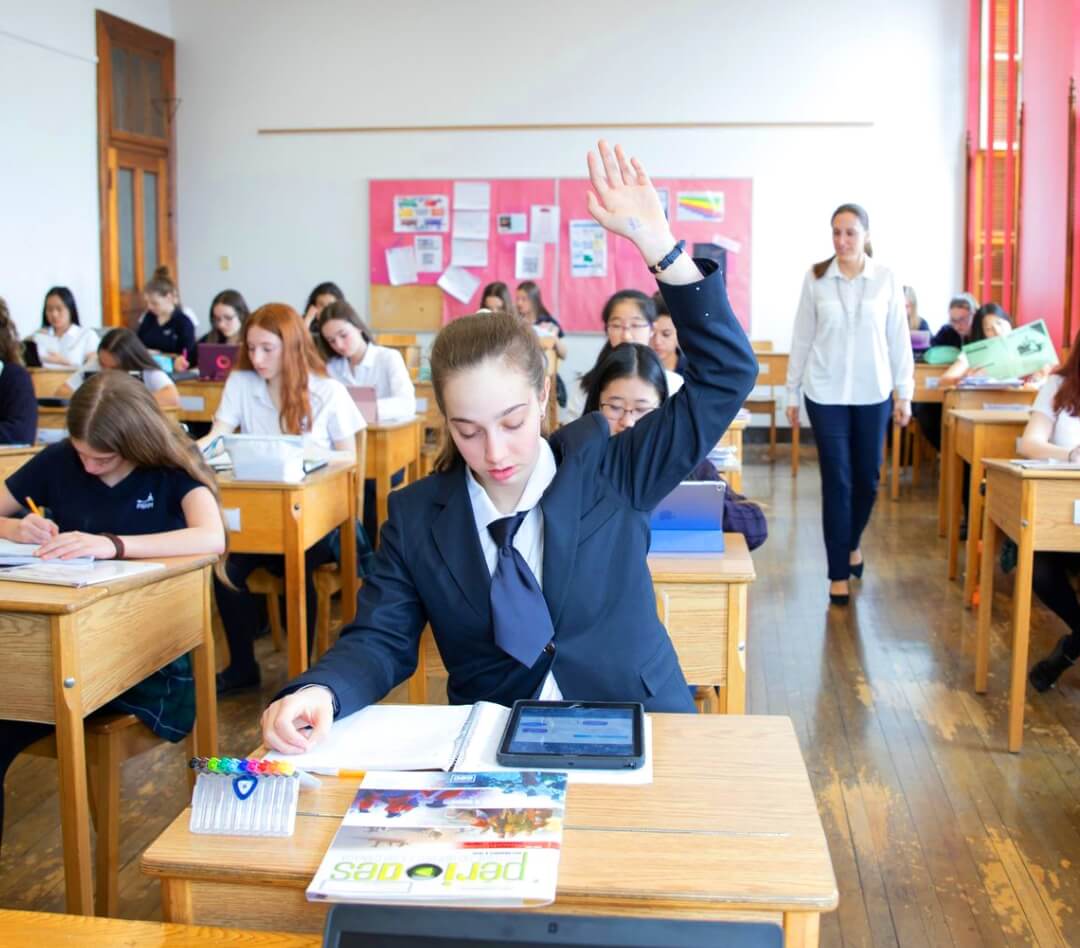Frequently asked questions
Here are the questions we are asked most frequently. If you have any other inquiries, or if you wish to discuss any given subject in greater detail, please do not hesitate to write to us or give us a call.
WHAT IS AN INDEPENDENT SCHOOL?
Independent Quebec schools are autonomous not-for-profit organizations, managed by a board of directors comprised of alumni, parents, and community members.
Some were established by parents or teachers who dreamed of a different type of school. Others, founded by religious communities, were then handed over to the civilian population. Some of them are parent or teacher co-operatives. Twelve independent schools that focus on special education were founded by parents of children who, given their handicaps or difficulties, could not be integrated with a standard class.
The main difference between independent school and public school is autonomy. Reporting to the Ministry of Education, the former determines their educational project, hires their own staff, and maintains a direct link with their students’ parents via an educational service contract.
HOW MUCH DOES PRIVATE SCHOOL COST?
In Quebec, parents who choose subsidized independent school pay an average of $4,500 per year, equivalent to approximately $25 per day (180 days of school per year).
The fees can be broken down as follows:
- Registration fees: between $100 and $200
- Tuition fees: between $2,500 and $5,000
- Additional fees: between $500 and $2,000
Additional fees include activities and mandatory field trips, educational materials, insurance, locks, etc.
In the case of non-subsidized schools, parents pay approximately $10,000 per year.
Independent schools generally offer a discount to families with two or more children attending the same school.
In the case of independent schools that focus on special education, students are referred by school boards, which then absorb the cost of the child’s enrolment.
Specialized independent schools will occasionally have a few spots for parents that wish to enrol their child without being recommended by the school board. These families will have to pay approximately $500 for their child’s transportation, if necessary.
WHO CAN ATTEND PRIVATE SCHOOL?
Regular independent schools, whether subsidized or not, welcome students who have the capacity to integrate with an ordinary class. They accept children from diverse backgrounds, including gifted students and students with learning difficulties. All independent schools are equipped to create response plans. A number of independent schools offer an educational project created specifically for high-motivation students who are academically inclined and ready to work at a more intense level.
Some independent schools receive more applications than they have spots. In these cases, they give priority to current students’ brothers and sisters. They then fill the rest of the available spots according to selection criteria that vary from school to school:
- Registration date (first come, first served)
- Program choice, based on the number of available spots
- Random draw
- Academic results and admission exam results (when the educational project calls for it)
- Interviews with the student
- Etc.
Visit the websites of the independent schools that interest you to learn more about their admission criteria.
Given that independent schools do not receive subsidy adjustments for handicapped students or students with social or learning difficulties, some schools are not able to provide the support that some students need. These cases are becoming increasingly rare thanks to efforts that have been made in recent years to enrol students from diverse backgrounds.
Independent special education institutions have specific admission criteria. To find an institution that suits your child’s needs, visit your local independent schools’ websites and take advantage of their open houses to speak with the staff.
Independent schools are attentive to the needs of both parents and children. They have the ability to react quickly in order to adapt to each student’s needs and the demands of each family that is a part of the community.
WHO FUNDS PRIVATE SCHOOLS?
In Quebec, the majority of independent schools receive subsidies from the government for each student. These grants account for 60% of what is paid to the independent school per regular student, for educational services only. Subsidized independent schools operate according to a model that is similar to early childhood centres (CPE in Quebec).
Unlike public schools, independent schools do not receive additional funding when they enrol a student with specific difficulties. They do not receive money from school taxes and must provide their own buildings and school furniture. They do not receive the extra allowances allocated to public schools. Therefore, the government’s subsidies represent 40% of the total cost of putting a student through independent school (source Indicateurs de gestion des établissements d’enseignement privés, MEES, page 8). Parents who choose independent school must therefore make a financial contribution to their child’s education.
Some independent Quebec schools are not subsidized. The majority of these schools are also not-for-profit organizations. Many of them offer bilingual or trilingual programs. As a result, parents must pay for their child’s education in its entirety.
This video explains how independent schools are funded.
IS FINANCIAL AID OFFERED FOR PRIVATE SCHOOLING?
The government does not provide financial aid or tax credits for families with children who attend independent schools.
However, many independent schools have started their own foundations and offer financial aid to some 8,000 québécois students from low-income families. These scholarships are not given out based on academic performance. All students accepted to the school can request financial aid if their situation meets the foundation’s criteria.
ACADEMIC LIFE
Independent schools are leading partners in facilitating work-family balance. They offer many solutions that allow students to not only develop their academic skills, but also to pursue different extracurricular interests: sports, art, community activities, academic entrepreneurship, multimedia, robotics, travel, etc.

IF YOU HAVE OTHER QUESTIONS ABOUT QUEBEC’S INDEPENDENT SCHOOLS, DO NOT HESITATE TO WRITE TO US OR GIVE US A CALL.
FIND A SCHOOL THAT BEST SERVES YOUR CHILD’S NEEDS!